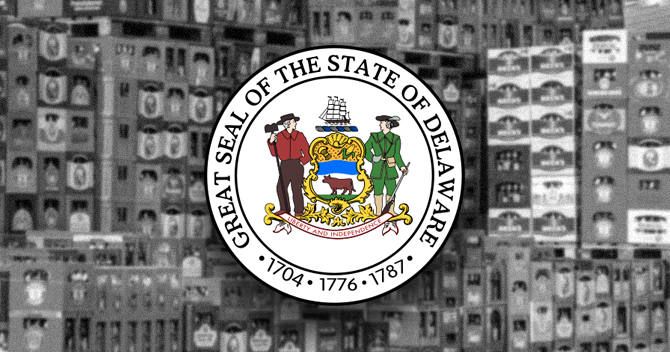
Vermont Governor Signs Franchise Law Reform
As the contentious franchise law debate drags on in Massachusetts, another New England state has enacted reforms.
On Monday, Vermont Gov. Phil Scott approved House Bill 710, which will allow beer companies making fewer than 50,000 barrels annually, and whose business accounts for three percent or less of a wholesaler’s total annual sales, to break their franchise agreements.
Beer makers who want to terminate their wholesalers will be required to provide compensation for inventory as well as five times the average annual gross profits earned by the wholesaler on the brewery’s products during the previous three fiscal years. For newer beer companies, they must pay for the period of time they’ve been in business.
The regulations are slated to take effect in 2022.
The new law also requires that, in the event of the sale of a distributorship or a transfer of distribution rights to certain brands, a wholesaler must provide 90 days written notice to suppliers. If the supplier opposes the sale or transfer, that company can buy back its distribution rights or petition the state’s Superior Court for a hearing.
For companies entered into franchise agreements prior to January 2019, the state is requiring the two parties to enter into written contracts that will be effective as of July 2022. If the parties can’t reach a deal prior to that date, then the partnership will terminate and the beer company will be required to compensate the wholesaler.
According to Vermont Public Radio, brewers and distributors are both unsatisfied with the new regulations.
“It’s a small step in the right direction of allowing small brewers the freedom to do business without the undue government interference,” Sean Lawson, co-owner of Lawson’s Finest Liquids, told VPR, “but there are a number of provisions that were concessions to the concerns of wholesalers and distributors.”
Meanwhile, Farrell Distribution president Dave Farrell told the outlet that the new regulations are “a solution looking for a problem that we don’t think exists.”

Kansas Makes Package of Alcohol Proposals Law
Kansas Gov. Jeff Colyer signed into law a package of alcohol bills last week that include the legalization of contract brewing in the state, according to the Lawrence Journal-World.
Among the other provisions of the law, the state’s microbreweries can now legally produce beers up to 15 percent ABW (or 18.75 ABV). The new law also allows the state’s bars and restaurants to begin serving alcohol at 6 a.m. Previously, they had to wait until 9 a.m. to start alcohol service.
The state’s bars will also now be allowed to install self-serve taps that dispense up to 32 oz. of beer, per consumer, for on-premise consumption.
The new laws will be effective once they are published in the Kansas Register, which the Journal-World says occur “within the next few weeks.”

Delaware Lawmakers Vote to Allow Craft Alcohol Producers to Cross-Sell Products
The Delaware Legislature has passed a bill that would allow the state’s craft breweries, distilleries and wineries to sell each other’s products for on-site consumption, as long as they are purchased through a wholesaler, according to the News Journal.
House Bill 373 is now on the desk of Gov. John Carney, who has not indicated whether he will sign the bill into law. However, Carney did issue a statement to the News Journal saying, “Delaware has a thriving craft beverage industry that helps drive our $3 billion tourism economy. We’re always looking for ways to support our craft breweries, wineries and distilleries.”
If Carney does sign the bill into law, it would go into effect immediately.

Colorado Lawmakers Pass Guidelines for Full-Strength Beer Sales in Grocery, C-Stores
Starting in January 2019, grocery and convenience stores in the state of Colorado will be allowed to sell full-strength beer. The change away from low-strength “3.2 beer” has been three years in the making, and Colorado lawmakers have finally passed guidelines for those sales, Colorado Politics reported.
Earlier this month, Colorado legislators passed Senate Bill 243, which allows minors as young as 18 to sell beer in grocery and convenience stores as well as liquor stores. The bill also requires grocery and convenience stores to employ the people who deliver beer to consumers’ homes. Also contained in the measure is a requirement that new or relocating retail stores selling alcohol be located 500-feet from schools and 1,500 feet from an existing liquor store.
The legislation was sent to Gov. John Hickenlooper on Monday.

Alaska Alcohol Reform Dies
An attempt to overhaul Alaska’s alcohol laws is now dead, according to the News Miner.
Sen. Peter Micciche withdrew the legislation — Senate Bill 76 — after a poison pill amendment was added to the bill by the House Labor and Commerce Committee — whose members include current and former bar owners — that would have reduced the daily serving sizes at breweries from 36 ounces to 24 ounces and distilleries from 3 ounces to 2 ounces, the outlet reported.
Included in S.B. 76 was the creation of a “stripped-down manufacturing license for breweries, wineries and distilleries, with no limit on licenses based on population,” according to the Peninsula Clarion. The bill would have also required breweries operating tasting rooms to purchase a biennial retail license.
